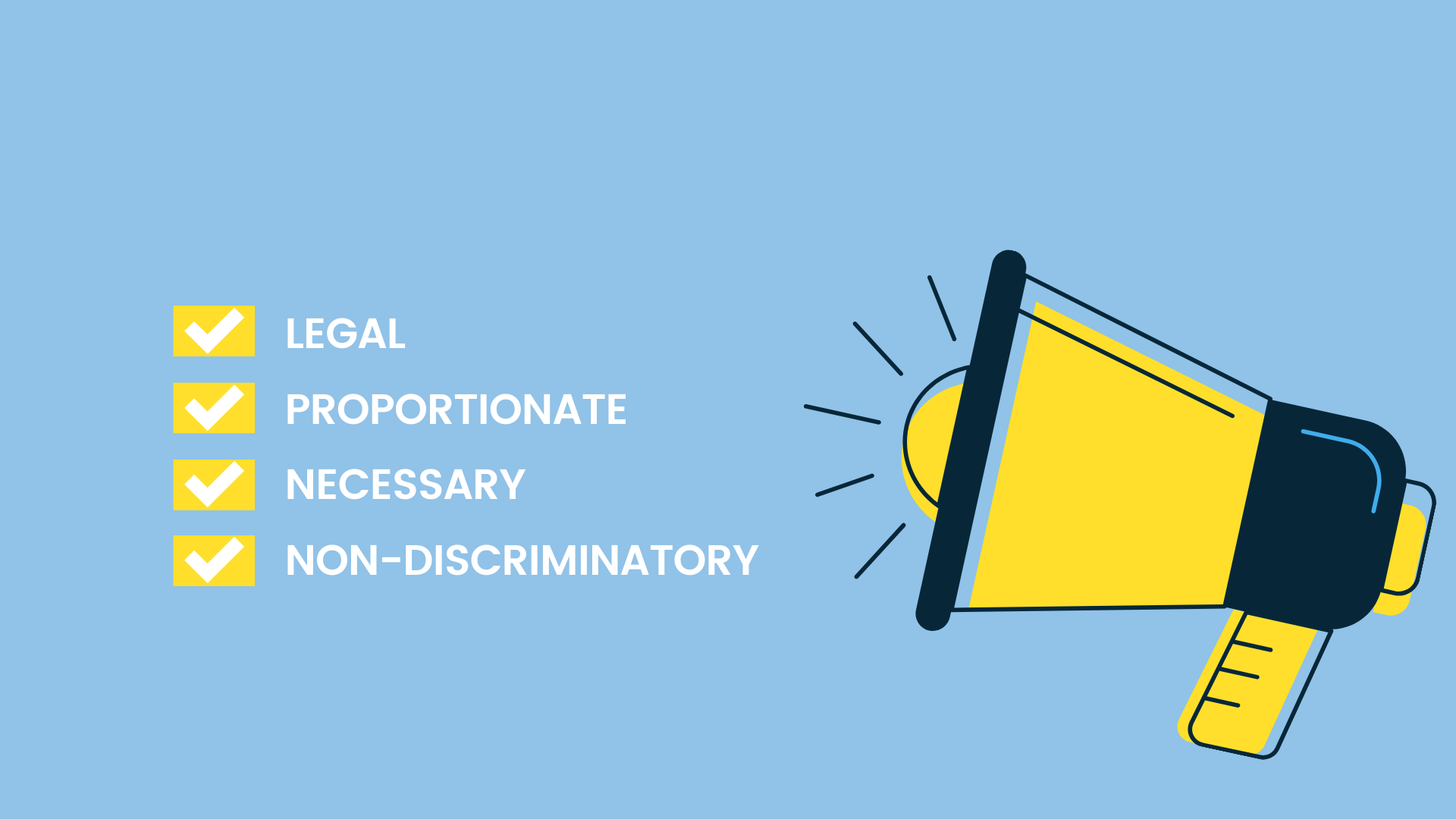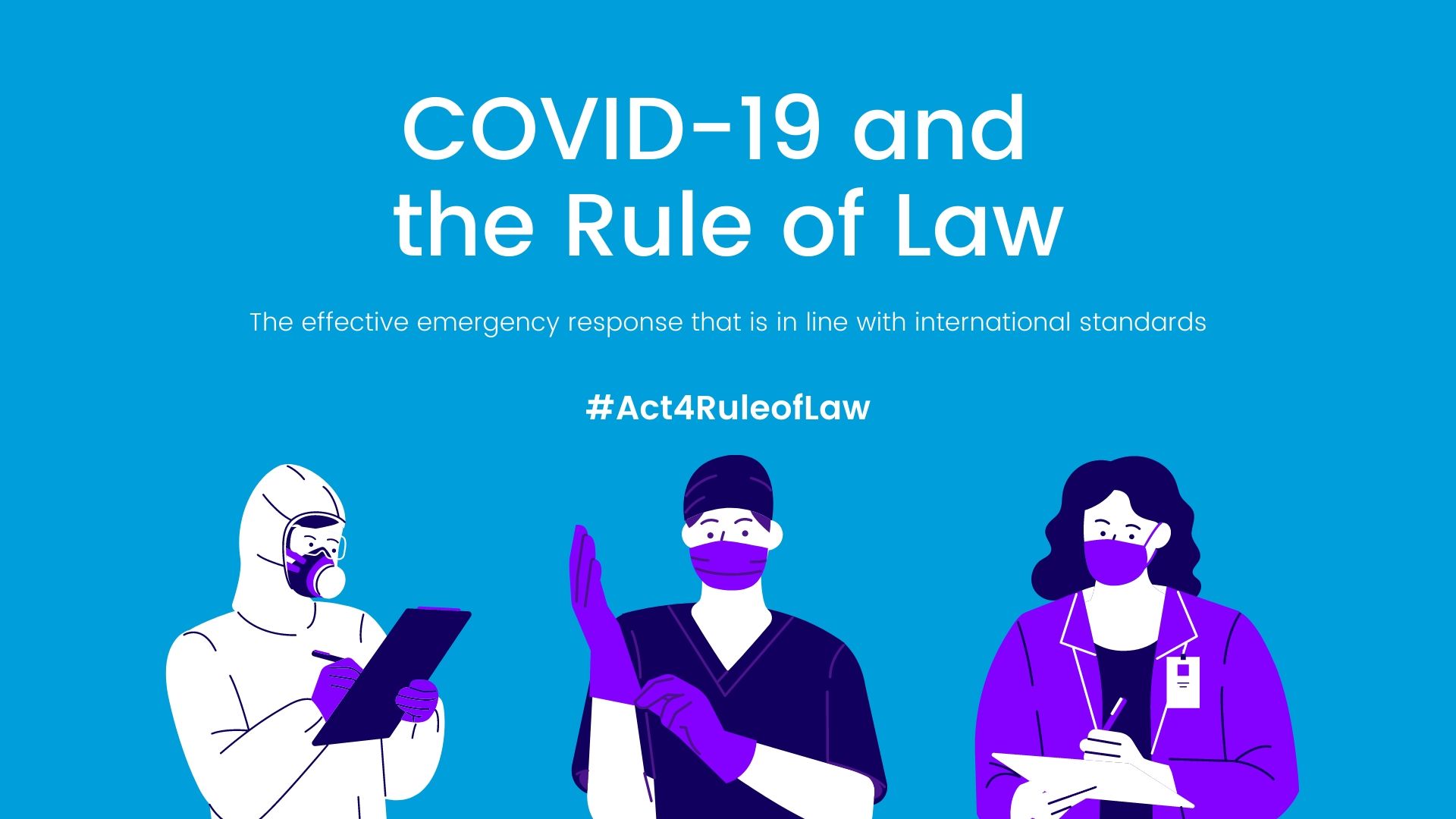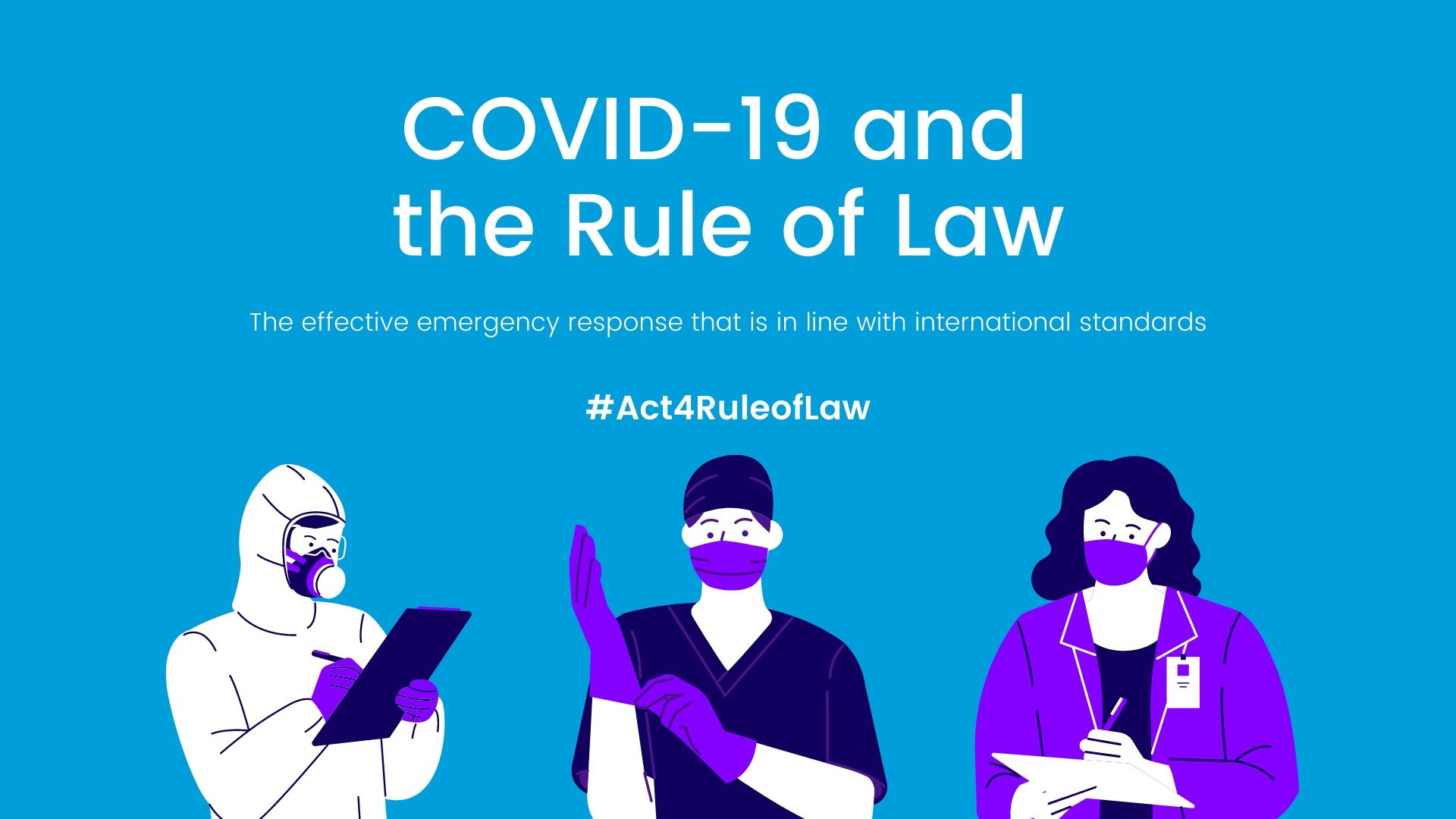
insights
COVID-19 and the rule of law
The COVID-19 pandemic is posing unprecedented challenges to countries around the world. Alongside health and socio-economic impacts, the crisis has also fundamentally affected the functioning of States and democratic institutions, putting to the test the principles of accountability, equality, transparency and access to justice which underpin the rule of law.

The pandemic has clearly exposed important weaknesses, and added new challenges, in the delivery of public services and structural inequalities that impede access to them. While the virus itself poses a risk to everyone, the effects of the pandemic have disproportionately concentrated on certain communities and vulnerable groups who face far bigger obstacles in accessing justice, health, education, livelihood and social support, even though these rights are universal. Tackling the very core of these structural inequalities, which have surged during confinement and other COVID-related containment measures, will be essential not only to ensure that everyone has equal access to public services, but more broadly to achieve social justice. Today’s inequalities, together with oftentimes heavy-handed security responses, may further undermine peoples’ trust in the fairness and effectiveness of public institutions and therefore in the rule of law.
In attempts to limit the spread of COVID-19 and protect human lives, Governments have had to resort to exceptional measures, including states of emergency. These emergency measures inevitably restrict people’s fundamental rights, including access to education and public services, employment and mobility. In their responses to the crisis, States must continue to uphold the rule of law and ensure that the measures put in place are legal, proportionate, necessary and non-discriminatory, keeping as a goal the least intrusive approach possible to protect public health. However, in reality this is not always the case and there have been instances of excessive use of force by law enforcement entities across countries in an attempt to address the violation of COVID-19 emergency legislation. Ensuring human rights-compliant responses by law enforcement, and supporting law enforcement officials in their duties, is imperative for the wellbeing of individuals, societies and the rule of law. As stated by Secretary-General Antonio Guterres, “human rights cannot be an afterthought in times of crisis”. Emergency powers must be in line with legal frameworks and international human rights obligations and apply safeguards and oversight mechanisms.
The role of the justice system, as a check on executive actions and as an upholder of the rule of law, is crucial at this time. Creative and innovative responses are also needed by the justice system to overcome the challenges posed by containment measures and ensure, among others, the right to equality before the law, the right to an independent and impartial judge, the right to access legal advice, and the right to appeal decisions in a timely manner to reduce risks of arbitrary detention. Those guarantees are applicable to everyone, including victims of crime and alleged offenders. With this in mind, justice systems in several countries are making use of secure online platforms where possible to maintain at least a minimum level of operations and continue conducting proceedings and trials. Specific groups that face heightened risks due to the COVID-19 crisis and its mitigation measures require specialized attention with tailored services and protection guarantees to ensure no one is left behind. Within the justice system, providing appropriate protection for those held in prisons is a matter of concern. A solution provided by prison authorities in several countries is granting temporary release to prisoners who are not considered a danger to society.
Access to accurate and user-friendly information is also key in promoting transparency, civic participation and a culture of lawfulness as building blocks of the rule of law. Renewed efforts must be made by States to make available and accessible such official information regarding the COVID-19 outbreak, as well as to ensure freedom of the press and freedom of expression, all while addressing the worrying rise of misinformation and hate speech together with the involvement of information services and social media platforms.
Everyone has a role to play in upholding the rule of law. How well States respond to peoples’ needs during the pandemic, how people engage to promote public health and wellbeing in their daily lives, and how effective, open and respectful the measures put in place will be for building back better, will determine to a large extent public perceptions of social justice and trust in public institutions, as well as the future strength of the rule of law.
References:
- UNODC/UNDP Guidance Note on Ensuring Access to Justice in the Context of COVID-19
- We are all in this Together – Human Rights and COVID Response and Recovery (Address by United Nations Secretary-General)
Explore More
- Insights

